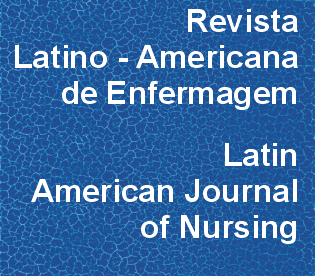Resistência bacteriana e mortalidade em um centro de terapia intensiva
DOI:
https://doi.org/10.1590/S0104-11692010000600016Palavras-chave:
Vigilância Epidemiológica, Infecção Hospitalar, Unidades de Terapia Intensiva, Mortalidade, Resistência Microbiana a MedicamentosResumo
Objetivou-se identificar fatores de risco para o desenvolvimento de infecções, relacionadas ao cuidar em saúde, por microrganismos resistentes e a mortalidade dos pacientes em um centro de terapia intensiva. Trata-se de estudo epidemiológico prospectivo, realizado entre 2005 e 2008, envolvendo 2.300 pacientes. Utilizou-se estatística descritiva, análise de regressão logística bivariada e multivariada. Na análise bivariada, a infecção por microrganismo resistente esteve significativamente associada a pacientes com infecção comunitária (p=0,03; OR=1,79) e colonização por microrganismo resistente (p<0,01; OR=14,22). Na análise multivariada, severidade clínica C (p=0,03; OR=0,25) e colonização por microrganismo resistente (p<0,01; OR=21,73) foram significativas. Para óbitos, observou-se, como fator de risco: tipo de paciente, severidade clínica e uso de ventilação mecânica. A constatação da relação entre microrganismo resistente e óbitos evidencia a necessidade de monitorização da adesão às medidas de controle de infecção, no sentido de melhorar a qualidade da assistência e, sobretudo, a sobrevida de pacientes críticos.Downloads
Os dados de download ainda não estão disponíveis.
Downloads
Publicado
2010-12-01
Edição
Seção
Artigos Originais
Licença
Os direitos autorais são de propriedade exclusiva da revista, transferidos por meio da Declaração de Transferência de Direitos Autorais (presente no Formulário Individual de Declarações) assinada pelos autores. Para a utilização dos artigos, a RLAE adota a Licença Creative Commons, CC BY-NC Atribuição não comercial (resumo ou código completo da licença). Com essa licença é permitido acessar, baixar (download), copiar, imprimir, compartilhar, reutilizar e distribuir os artigos, desde que para uso não comercial e com a citação da fonte, conferindo os devidos créditos autorais a Revista Latino-Americana de Enfermagem. Nesses casos, nenhuma permissão é necessária por parte dos autores ou dos editores.Como Citar
Oliveira, A. C. de, Silva, R. S., Díaz, M. E. P., & Iquiapaza, R. A. (2010). Resistência bacteriana e mortalidade em um centro de terapia intensiva . Revista Latino-Americana De Enfermagem, 18(6), 1152-1160. https://doi.org/10.1590/S0104-11692010000600016



